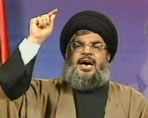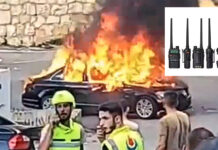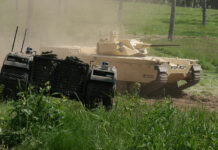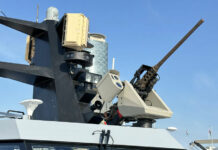A report released last week by United Nations Secretary General Ban Ki-moon described Hezbollah as a threat to Middle East security, and called for both the Lebanese militant group and Israel to stop threatening each other through the media. The report, sent to the members of the UN Security Council, also criticized Syria for allowing weapons smuggling to Lebanese militias.
“Hezbollah’s maintenance of a major armed component and a paramilitary infrastructure separate from the state, including a secure network of communication, which the group itself deems an integral part of its arsenal, is a direct challenge to the authority of the government of Lebanon and its security forces and prevents their exclusive control over the entire territory of Lebanon,” said the report.
What then will the next war look like?
 Should Sheikh Hassan Nasrallah, Secretary-General of Hezbollah chose to go to war with Israel for another round, he may well be in for a very unpleasant surprise. Israel simply cannot afford another rocket offensive on it’s territory, wherever it may come from. No democratic government can survive such a situation, even if world opinion will sharply condemn its brutal reaction. A future rocket attack must be prevented at all costs, all Israelis agree.
Should Sheikh Hassan Nasrallah, Secretary-General of Hezbollah chose to go to war with Israel for another round, he may well be in for a very unpleasant surprise. Israel simply cannot afford another rocket offensive on it’s territory, wherever it may come from. No democratic government can survive such a situation, even if world opinion will sharply condemn its brutal reaction. A future rocket attack must be prevented at all costs, all Israelis agree.
 A recent interview with GOC Northern Command, General Gadi Eisenkot and articles written by two senior reserve officers, indicate that the IDF will continue to give first priority to firepower, even if the targets it chooses are different than those selected in previous conflicts. Eisenkot presented his “Dahiyah Doctrine,” under which the IDF would expand its destructive power beyond what it demonstrated two years ago against the Beirut suburb of Dahiyah, considered a Hezbollah stronghold.
A recent interview with GOC Northern Command, General Gadi Eisenkot and articles written by two senior reserve officers, indicate that the IDF will continue to give first priority to firepower, even if the targets it chooses are different than those selected in previous conflicts. Eisenkot presented his “Dahiyah Doctrine,” under which the IDF would expand its destructive power beyond what it demonstrated two years ago against the Beirut suburb of Dahiyah, considered a Hezbollah stronghold.
“We will wield disproportionate power against every village from which shots are fired on Israel, and cause immense damage and destruction. From our perspective, these are military bases,” he said. “This isn’t a suggestion. This is a plan that has already been authorized.”
Retired Major General Giora Eiland, formerly head of the National Security Council, belongs to a similar school of thought, and even takes this doctrine one step further.
 Eiland states it is impossible to beat an efficient guerrilla army supported by a state, totally immune from retribution. The fact that Hezbollah has rebuilt its strongholds beneath the Shi’ite villages in southern Lebanon made IDF maneuvering efforts difficult, while, targeted strikes against rocket launch sites will not decrease the number of rockets fired at Israel. Those are frequently launched from civilian populated houses, which Israel sofar refused to attack.
Eiland states it is impossible to beat an efficient guerrilla army supported by a state, totally immune from retribution. The fact that Hezbollah has rebuilt its strongholds beneath the Shi’ite villages in southern Lebanon made IDF maneuvering efforts difficult, while, targeted strikes against rocket launch sites will not decrease the number of rockets fired at Israel. Those are frequently launched from civilian populated houses, which Israel sofar refused to attack.
“Thus, Hezbollah operates under optimal conditions from our perspective. A legitimate government runs Lebanon, supported by the West, but it is in fact entirely subordinate to the will of the Shi’ite organization,” writes Eiland. He recommends preemptive action: that Israel will pass a clear message to the Lebanese government, as soon as possible, stating that in the next war, the Lebanese army will be destroyed, as will the bulk of Lebanon’s civilian infrastructure. Such stern warnings, which are, in Israel’s open society quite uncommon, should not be taken lightly, nor should Hezbollah, Syria, Iran or the international media disregard this new trend, which has taken firm hold in the Israeli media.
So where is Nasrallah heading to? Is it another war, to try out Israeli patience once more, or is this part of his domination powerplay to get further involved into Lebanese politics?
For its critics Hezbollah is nothing more than a tool of Iranian policy operating in Lebanon as a regional extension of Tehran’s political and strategic interests, in conjunction with Syria, Iran’s main ally in the Middle East. For its supporters, it is equally an indigenous representative of a major Lebanese community, working to reflect the aspirations of its constituents. In fact, Hezbollah is a combination of all the above.

















